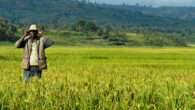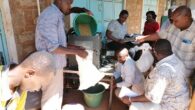The greenhouse gas emissions (GHG) from rice fields contribute significantly to global warming and climate change. Therefore, mitigating emissions from rice fields is critical to limiting global warming, increasing yield, and income, ensuring food security, and improving the standard of living for farmers...
TRENDING Topics

















